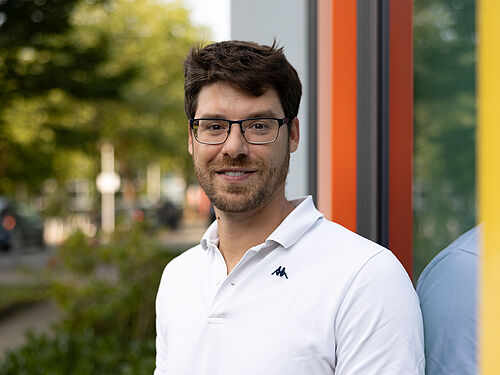The symmetric encryption of data is ubiquitous. The aim of Dr. Lorenzo Grassi's (Postdoc for Symmetric Cryptography at the Horst-Görtz-Institute for IT Security, Faculty of Computer Science of the Ruhr-University Bochum) project “Getting SYMmetric CryPtography Out of its Comfort ZONe” - SYMPZON for short - is to make it fit for the future. The researcher, who works at the Cluster of Excellence Cyber Security in the Age of Large-Scale Attackers CASA at Ruhr-Universität Bochum, has been awarded a Starting Grant by the European Research Council. The funding of around 1.5 million euros will be granted for five years.
Making information secure
Our lives are being profoundly affected by digitalization. The amount of sensitive data exchanged via cloud storage is growing every day. Whenever sensitive data is collected, modified, exchanged, analyzed and stored, symmetric cryptography is used. It is based on the fact that two parties must have the same key to decrypt data. Encryption helps to keep information private, authenticated and secure.
The most commonly used and best-known symmetric encryption algorithms are AES and Keccak/SHA-3. “Because of their importance, the entire research community is focusing on these methods,” says Lorenzo Grassi. “However, this does not only have advantages.” The majority of recently published symmetric encryption algorithms are similar to these two algorithms. “This similarity leads to a decrease in their performance,” says Lorenzo Grassi. “Furthermore, our understanding of their security has not fundamentally improved over the past few years.” Most importantly, current symmetric cryptographic algorithms are not suitable for emerging applications.
“To overcome these fundamental problems, it is necessary to rethink symmetric cryptography algorithms in the light of these new applications,” says Lorenzo Grassi. In his ERC project, he plans to redesign the process of proposing and analyzing symmetric algorithms that work over integer rings by developing both a new theoretical framework and constructing concrete cryptographic algorithms for practical use cases. “This will lead to revolutionary symmetric cryptographic schemes that target the increasing number of applications that operate over rings, with unprecedented security arguments and performance.”
About the person
Lorenzo Grassi is a postdoctoral researcher in symmetric cryptography at Ruhr University Bochum and a consultant at Ponos technology. He studied mathematics at the University of Milan (Italy) and completed his PhD at the Graz University of Technology (Austria) in April 2019. After a postdoctoral stay of almost one year at Graz University of Technology, he moved to Radboud University Nijmegen (Netherlands) in 2020 and then to Ruhr-Universität in 2023, funded by the CASA Jump.Start program for postdocs.
General note: In case of using gender-assigning attributes we include all those who consider themselves in this gender regardless of their own biological sex.


